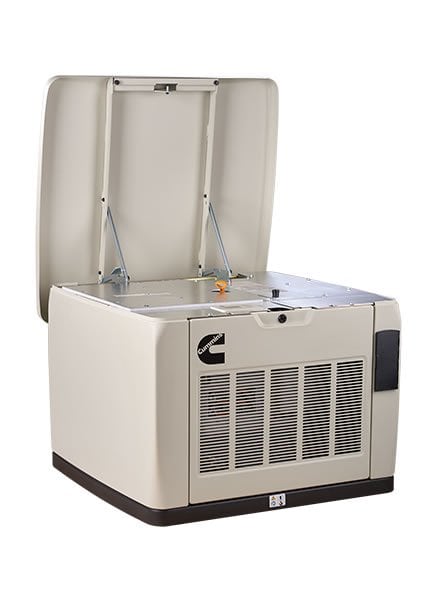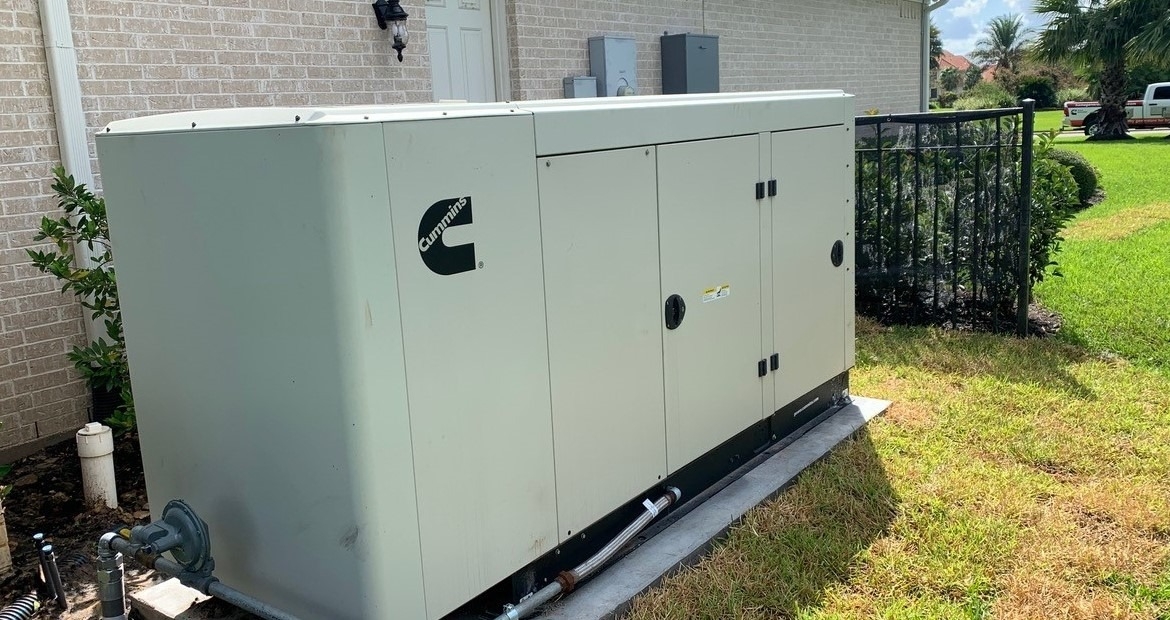Troubleshooting Common Generator Issues
Rocky Mountain Generator Supply
Generators, serving as a critical power supply resource, can encounter operational challenges that can lead to inconvenient power disruptions. Some brands are more susceptible than others. Here we'll talk about starting problems, fuel supply issues, dead batteries, ignition system faults, and overheating.
Starting Problems and Solutions
A common issue often encountered is the failure of the generator to start, which can be attributed to various factors including fuel problems, battery issues, or spark plug failure.
With respect to the spark plug, its role in the ignition system is to ignite the air-fuel mixture inside the engine's cylinders to start the generator. However, a spark plug failure can prevent this from happening, leading to issues with the generator's starting mechanism.
Delving into the specifics of spark plug failure, it is essential to elucidate the various causes and manifestations of this issue. Often, a spark plug may fail due to a buildup of carbon deposits, wear and tear, or improper gapping, all of which can inhibit the spark plug's ability to generate the necessary spark.
This failure can manifest as a generator that is difficult to start, runs rough or fails to run at all. Furthermore, a failed spark plug may lead to a decrease in fuel efficiency, increased emissions, and potential damage to the engine. To ensure the optimal performance of the generator, routine inspection and maintenance of the spark plug are vital.
To mitigate the issue of spark plug failure, several measures can be adopted. Regular inspection and replacement of the spark plug as per the manufacturer's recommendation can prevent premature failure. Additionally, ensuring correct gapping during installation can enhance the longevity of the spark plug. Cleaning the spark plug periodically can also prevent carbon buildup, thus reducing the chances of failure.
It is also important to ensure the use of quality spark plugs, as substandard ones can lead to frequent issues. As such, addressing spark plug failure forms a critical part of troubleshooting common generator issues.
Fuel Supply Issues
The importance of a continuous and clean fuel supply for optimal generator performance cannot be overstated.
A common issue involves the fuel system's functionality, where the generator either receives too little fuel or none at all. Several factors can contribute to this problem, including clogged fuel filters, air in the fuel lines, or a malfunctioning fuel pump.
The presence of contaminated fuel within the power system is another frequent concern. Contaminated fuel often contains water, dirt, or microbial growth that can lead to a host of problems, like corrosion, clogging of fuel filters, and damage to the fuel injector system. Moreover, contaminated fuel can cause combustion issues resulting in reduced power output and increased generator wear and tear.

Addressing fuel supply issues effectively requires a thorough understanding of the generator's fuel system and the potential causes of disruptions. Regular maintenance, involving checking and cleaning the fuel filters, inspecting for leaks, and ensuring the fuel pump is functioning correctly, can significantly reduce the likelihood of these problems. Additionally, monitoring the fuel quality and addressing any signs of contamination promptly can help maintain the generator's performance and longevity.
Dead Battery and Ignition System Faults
The battery is a crucial component of a generator set, providing the initial electrical power to the starter motor, which in turn cranks the engine. Therefore, a dead battery can prevent the generator from starting altogether.
On the other hand, faults within the ignition system, such as a defective ignition coil or spark plug, can also result in starting issues or intermittent operation of the generator. Both problems can cause unexpected downtime, leading to significant inconvenience and potentially severe consequences in critical applications.
Charging alternatives play a vital role in combating battery failures, especially in situations where the generator's battery charging system malfunctions. In such cases, external battery chargers can be employed to maintain the battery's state of charge and ensure the generator remains ready for operation. These charging alternatives can either be manual, requiring regular monitoring and intervention, or automatic, which continuously monitor the battery's condition and initiate charging when necessary.
Ignition system faults, on the other hand, often necessitate component replacement. Regular inspection and timely replacement of ignition components, such as spark plugs and ignition coils, can prevent potential faults and ensure reliable generator operation.
Addressing battery and ignition system faults in a generator requires a comprehensive understanding of the system's operation and components. Implementing charging alternatives is a practical solution to battery-related issues, ensuring the generator's readiness to operate when needed. Simultaneously, regular inspection and prompt replacement of ignition system components can mitigate the impact of potential faults, maintaining the generator's operational reliability.
Overheating and Cooling Problems
Overheating and cooling issues represent another significant challenge in the effective operation of power generation systems, with these problems often resulting from inadequate coolant levels or a malfunctioning cooling fan.
When the cooling system is not functioning optimally, the heat generated by the engine cannot be dissipated effectively, leading to an increase in the generator's overall temperature.
This increase in temperature can cause serious damage to the generator, compromising its performance and longevity. Furthermore, an overheated generator can pose a safety risk, as it can lead to fires or other accidents.
The most common solution for overheating and cooling problems in generators is coolant replacement. Coolant is a substance that absorbs heat from the engine and releases it into the atmosphere, thus helping to maintain the generator's optimal operating temperature.
When the coolant level is low or the coolant is old and has lost its heat-absorbing properties, it needs to be replaced. The process of coolant replacement involves draining the old coolant, flushing the system to remove any residues, and then refilling the system with new coolant. The frequency of coolant replacement depends on the generator's make and model, as well as its usage conditions.
Overheating and cooling issues in generators are a serious concern that should not be overlooked. Proper maintenance, which includes timely coolant replacement, can help ensure the efficient operation of the generator and prolong its lifespan.
Furthermore, if a malfunctioning cooling fan is detected, it should be repaired or replaced promptly to prevent further damage. It is recommended to consult the generator's manual or a professional technician for specific guidelines on the maintenance and troubleshooting of cooling issues.
Maintenance and Regular Inspections
Ensuring the optimal performance and longevity of power systems necessitates regular maintenance and comprehensive inspections. These activities aid in the early detection of potential issues, thereby preventing catastrophic failures and unplanned downtime.
Regular inspections can be categorized into routine checks and major inspections. Routine checks include daily, weekly, and monthly inspections focusing on potential leaks, fuel levels, battery condition, and general cleanliness. Major inspections, on the other hand, are more thorough and carried out less frequently, typically annually. These involve more in-depth procedures such as checking the generator's engine, alternator, and control panel, among other components.
The implementation of appropriate inspection techniques is a key factor in effective maintenance practices. Visual inspection is a fundamental technique, involving a careful examination of the generator for any apparent signs of wear, damage, or leaks. Other techniques include vibration analysis, which can identify mechanical issues such as misalignment or unbalance; thermal imaging to detect overheating components; and oil analysis to determine the condition of the engine oil. Utilizing a combination of these inspection techniques allows for a comprehensive assessment of the generator's condition, promoting early detection and resolution of potential issues.

Regular maintenance and inspections, when performed correctly and consistently, can significantly enhance the reliability and longevity of a generator. Generally, it is much more efficient, and effective and MUCH safer to have a certified professional inpsect and service your generator. Give us a call or fill out our form online for a service request and we'll be in touch as soon as possible.
Conclusion
Addressing common generator issues requires a systematic approach. Understanding the root cause is crucial for effective troubleshooting. This can range from starting problems and fuel supply issues to dead battery and ignition system faults. Prevention is always better than cure. Regular maintenance and inspections can mitigate the majority of these problems.
Most importantly, be smart and safe and let a certified professional service your equipment. Give Rocky Mountain Generator Supply a call and see how we can help. Don't wait until your generator has an issue to get it serviced — routine preventative maintenence will save you time and money in the long run.
